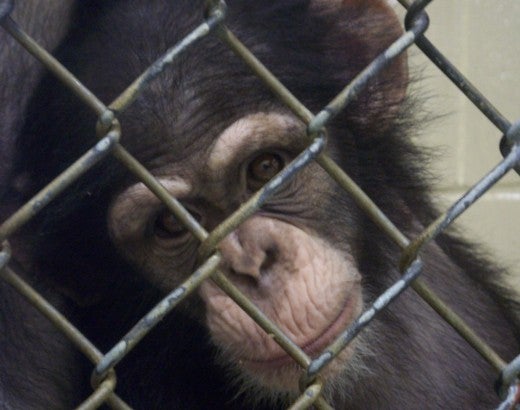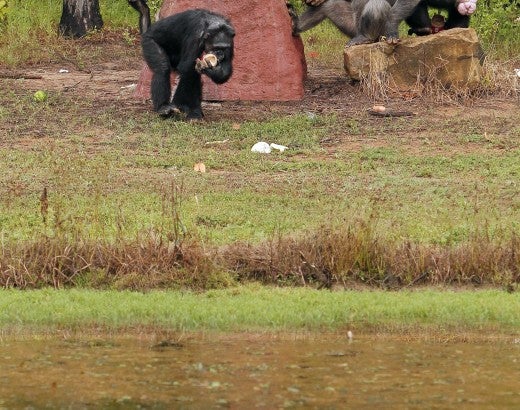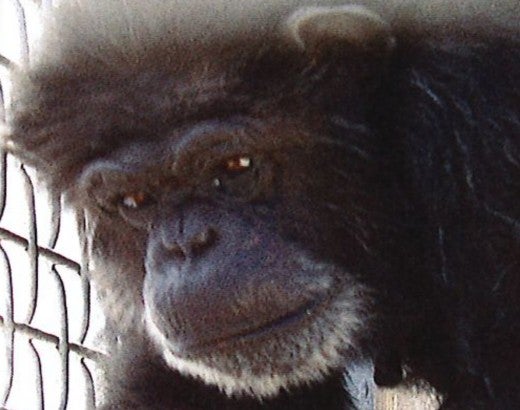In a stunning about-face on its own promise, the National Institutes of Health today announced it will not send 44 chimpanzees, now held by the Alamogordo primate laboratory in New Mexico, to sanctuary.
Just last October, NIH Director Francis Collins reiterated the agency’s full commitment to retire all chimpanzees it owns or supports to the federal sanctuary Chimp Haven, saying that there would be very limited exceptions. These are animals who have spent their lifetimes in metal cages and they deserve to enjoy the rest of their days in an environment that simulates, to the best extent possible, the natural surroundings of a chimpanzee in the wild.
Dr. Collins had clearly stated that the only exception to retiring the chimpanzees would be in cases where relocation would severely or irreversibly accelerate deterioration of the chimpanzee’s physical or behavioral health. Today’s agency announcement contradicts that promise. The NIH claimed that "it would be a serious risk to the chimpanzees’ health to move them." There were many flaws with the process that the NIH followed in deciding the chimpanzees’ fate: the panel was certainly not “independent” as it was made up of the NIH’s own veterinarians and it did not include a veterinarian with sanctuary experience nor a primate behaviorist nor an ethicist.
We expressed these concerns when the panel was created and had hoped they wouldn’t simply rubber-stamp the laboratory’s request to keep the chimpanzees confined at their facility for the rest of the animals’ lives while the laboratory continues to receive taxpayer dollars.
Unfortunately, that is exactly what happened. There is no clear evidence that the long-term welfare of the chimpanzees was actually considered in making this decision. We know that chimpanzees who are sent to sanctuary see an immense improvement in the quality of their lives. Since the inception of Chimp Haven, hundreds of chimpanzees, of all ages and health conditions, have moved there. There has not been a single death during transport and there are incredible stories of chimpanzees who have thrived at the sanctuary, including a chimpanzee named Grandma who was deemed as fragile when retired to Chimp Haven in 2005, yet lived happily there for another 10 years, reaching the age of 62.
We are putting the NIH on notice that this fight is not over. Chimpanzees are our closest relatives in the animal kingdom, and we share 99 percent of our DNA with these sentient and intelligent animals. The Humane Society of the United States and the Humane Society Legislative Fund have been working for a long time to end the use of chimpanzees in experiments and to get them to retirement in sanctuary and we will not let the NIH blindside the American public and let the chimpanzees suffer through the rest of their lives in the confines of a laboratory. We’re evaluating our options for judicial review to compel the NIH to honor its obligation under the Chimpanzee Health Improvement and Maintenance Protection Act, which requires that all government-owned chimpanzees deemed no longer necessary for research should be retired to the national sanctuary. The NIH has a responsibility to all Americans to ensure that these animals, who have suffered their whole lives, finally get the quality of life -- and a retirement -- they deserve, at Chimp Haven.
Sara Amundson is president of the Humane Society Legislative Fund.



